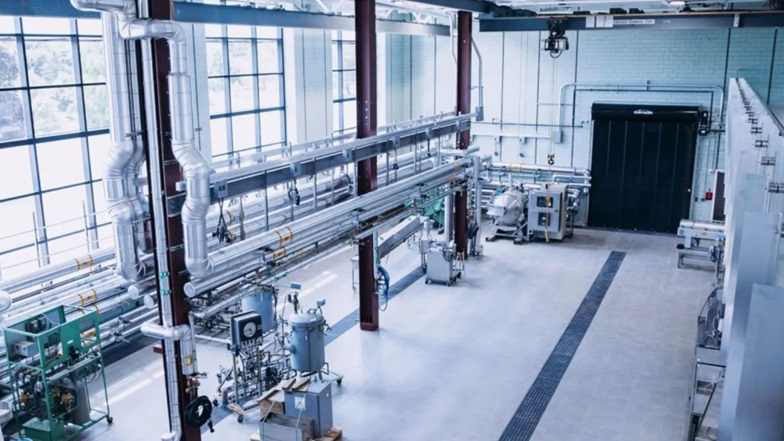Anthro Energy has just secured a $24.9 million grant from the US Department of Energy (DOE) to boost the domestic US EV battery supply chain, a move poised to strengthen US electric vehicle (EV) production. This grant, part of the Biden-Harris administration’s Bipartisan Infrastructure Law, is intended to modernize American infrastructure and foster clean energy innovation. With this funding, Anthro Energy will transform an existing site in Louisville, Kentucky, into the first large-scale, US-owned advanced electrolyte production facility.

What’s the Significance of Advanced Electrolyte?
Advanced electrolyte is a high-performance material that plays a crucial role in lithium-ion batteries. This substance enhances battery safety, longevity, and performance, especially as newer battery technologies, like silicon anodes and high-voltage cathodes, emerge. These technologies are expected to enhance EV efficiency and increase their range, making them a priority in the next phase of battery innovation.
The 25 GWh facility in Louisville, once operational, will produce 12,000 metric tons of advanced electrolyte annually. This production capability is significant, as the US has not previously had a large-scale, domestically-owned advanced electrolyte production facility. This addition to the supply chain will boost the nation’s energy independence, reducing the reliance on foreign suppliers and bringing a critical part of the EV manufacturing process to US soil.
The Broader Impact on US Energy Independence
The new Louisville facility marks a major step in strengthening the US’s position in the global battery industry. The facility will not only bolster domestic production but also create jobs, with 114 full-time positions and 390 temporary construction jobs expected.
David Mackanic, CEO of Anthro Energy, called the DOE grant a “pivotal moment” for both the company and US battery manufacturing. Mackanic emphasized that the facility will help propel the country toward a clean energy future, bolstering battery supply and enhancing energy independence.
In addition to the manufacturing impact, the Louisville project is committed to community development, with $2.5 million allocated toward workforce development, education, and sustainability initiatives. This approach aligns with the DOE’s goal of building a robust clean energy economy while prioritizing environmental and economic benefits for disadvantaged communities.
Benefits at a Glance
| Category | Benefit |
|---|---|
| Production Capacity | 12,000 metric tons of advanced electrolyte annually |
| Energy Independence | Reduces reliance on foreign suppliers |
| Job Creation | 114 full-time and 390 temporary jobs |
| Local Investment | $2.5 million for community development |
Why It Matters for the Future of EVs and Clean Energy
The DOE’s support for this Louisville project reflects a broader strategy to fortify US manufacturing, address climate challenges, and achieve net zero by 2050. As demand for EVs continues to grow, a strong domestic battery supply chain becomes essential to maintain competitiveness and sustainability. The Bipartisan Infrastructure Law, under which this grant was issued, supports efforts to combat the climate crisis and promote economic resilience, positioning the US as a leader in clean energy.
Related Post
